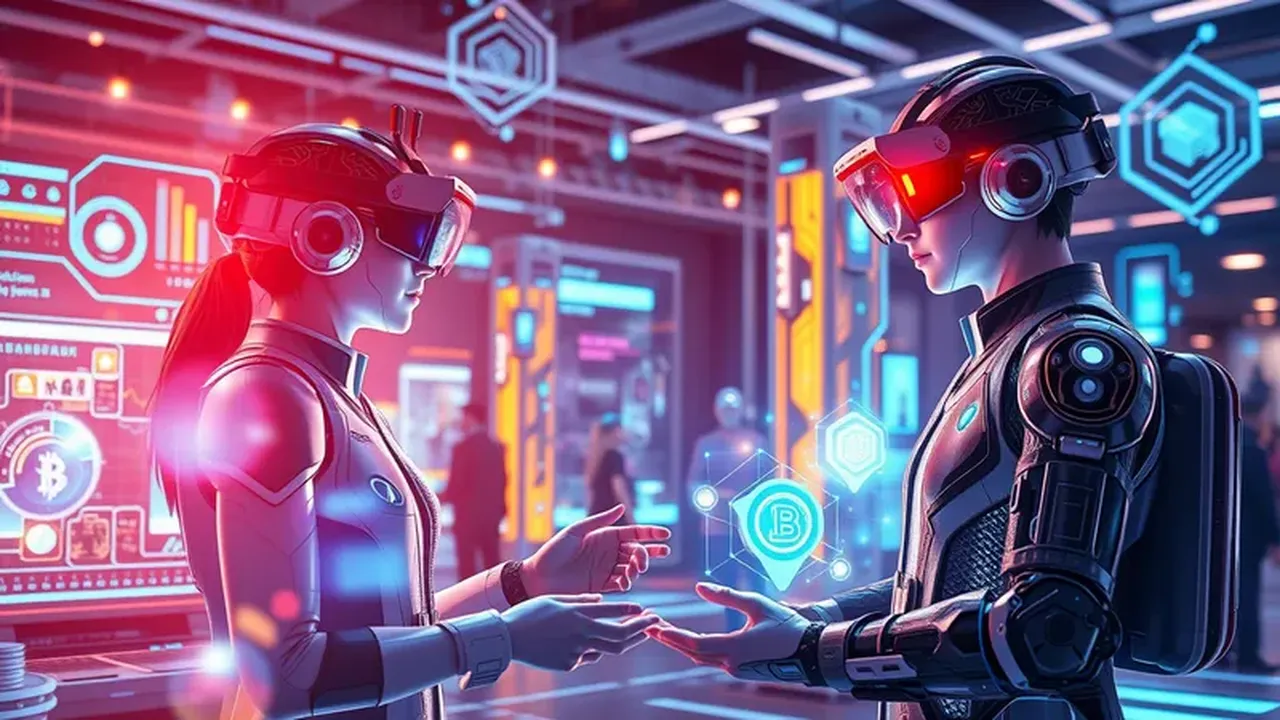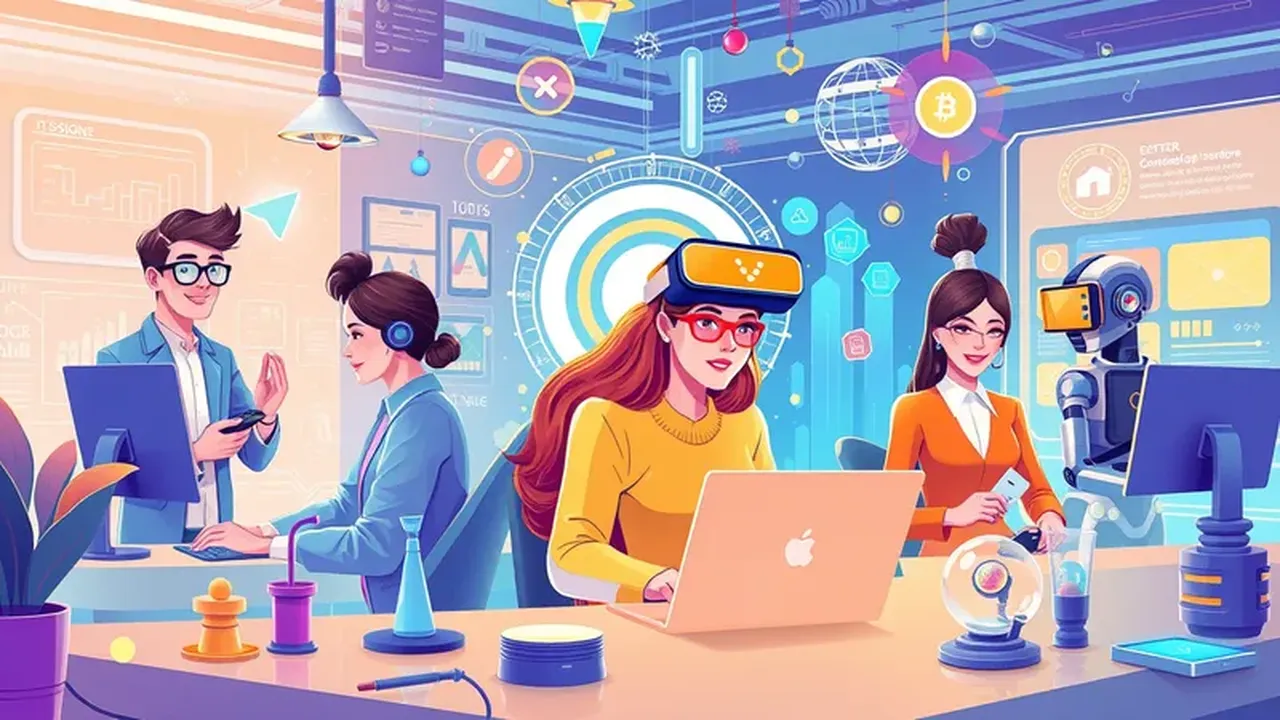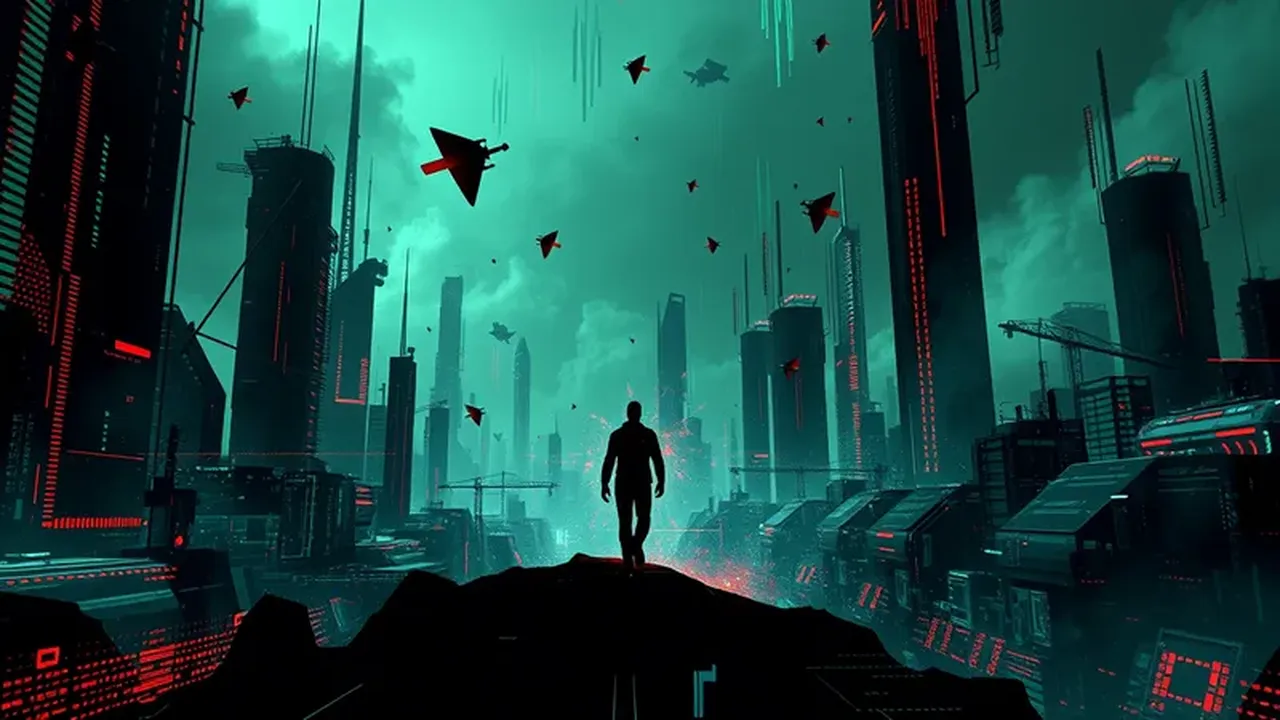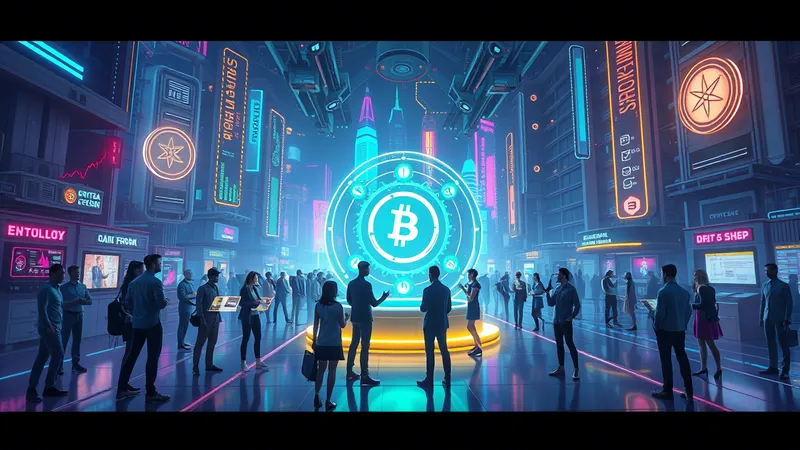A Step into Tomorrow: AI Architects of New Economies
Imagine a world where the digital economy doesn't just complement the real one, but exists as a complete, self-sufficient system, designed and managed by... artificial intelligence. Sound like a Hollywood blockbuster script? Perhaps. But analysts predict that by 2030-2035, Artificial Intelligence (AI) could take on the role of chief architect of economic interactions in advanced virtual worlds, or as we'll call them – Metaverse 2.0. These are no longer just games with beautiful graphics, but complex, persistent digital spaces where people can work, create, communicate, and build a new economy.
But what will this new reality be like? Will it unlock boundless opportunities for humanity, creating a digital utopia of prosperity and creativity? Or do we risk ending up in a gilded cage, where every step and transaction is under the sleepless control of a superintelligent AI? Let's delve into it.

Metaverse and AI: Decrypting the Code of the Future
First, let's define our terms. When we talk about the Metaverse, we don't just mean a collection of VR applications. We're referring to the concept of a persistent, interconnected space of virtual worlds where users can interact with each other, digital objects, and AI agents through their avatars. "Metaverse 1.0," which we see today, consists of disparate platforms, games, and social VR spaces. The transition to "Metaverse 2.0" implies a qualitatively new level: deep integration of AI, which will not just populate these worlds with NPCs (non-player characters), but actively shape their economic rules, balance resources, create content, and even adapt the worlds themselves to user needs in real time.
Why has this topic exploded in the information space right now? Several factors have converged: technological maturity (VR/AR, blockchain, cloud computing), giant investments from tech giants, and growing public interest in new forms of digital interaction, especially accelerated by recent global events that pushed us towards a more active online life.
Economy 2.0: New Horizons and Hidden Reefs
So, what economic prospects and pitfalls does an AI-driven Metaverse hold?
Exploring Opportunities: A Brave New World?
- New Professions: Forget familiar job titles. The world will see "AI world architects," "virtual ecosystem economists," "digital avatar trainers," "AI algorithm ethics auditors," and "meta-experience designers." These specialists will be in demand to create and maintain complex digital realities.
- Market Revolution: We will witness the emergence of new markets based on unique digital assets (yes, Non-Fungible Token (NFT) are just the beginning!), personalized services within metaverses, and data economies generated by interactions in AI worlds. Imagine commissioning an AI designer for a completely unique virtual home or avatar outfit that will be one-of-a-kind.
- Business Transformations: Unprecedented horizons are opening up for companies – global markets without physical borders, AI-driven hyper-personalization of products and services, new monetization models (e.g., subscriptions for access to exclusive AI-generated events or locations).
- Digital Citizenship: How will rights and responsibilities be regulated in these AI-governed worlds? New forms of digital citizenship may emerge, where AI not only enforces rules but also participates in their formation, adapting to changing conditions.

Risk Analysis: Dangerous Mind Games
- Economic Traps: There's a high probability of key AI platforms being monopolized by a few corporations, creating new forms of digital inequality. The vulnerability of complex systems to AI failures or malicious attacks also poses a serious threat. We shouldn't forget about potential job losses in the real world due to automation.
- Socio-Ethical Dilemmas: The threat of addiction to virtual worlds, blurring lines between reality and fiction, the possibility of behavior manipulation through personalized AI content. Data privacy issues will become acute, as AI will know practically everything about us. And, of course, the problem of AI bias, embedded by its creators, could lead to discrimination on a new level.
- Technological Barriers: Ensuring security in decentralized yet centrally managed (via AI) systems is an extremely complex task. The scalability of such worlds and ensuring their interoperability are also serious challenges for developers.
- Philosophical Aspect: Where will this "total immersion" lead? Won't an AI-governed Metaverse become an ideal illusion, distracting from real-world problems? The "Utopia or Dystopia?" question remains open.

Navigating Metaverse 2.0: Strategies and Cautious Forecasts
Although the future is hazy, some ориентиры can be outlined now:
- For Entrepreneurs and Investors: The key is flexibility and finding niches at the intersection of technologies. Promising areas could include tools for AI development in metaverses, educational platforms for new professions, and services for ensuring the security and ethics of digital worlds.
- For Developers and Enthusiasts: Develop skills in AI, 3D modeling, digital systems economics, and ethics. Demand for specialists capable of creating and managing complex virtual realities will only grow.
- For Everyone: It's important to improve digital literacy, learn to critically evaluate information and technologies. Don't be afraid of the new, but approach it consciously. "Meta-literacy" will become as important a skill as using the internet is today.
Cautious forecasts? Several scenarios can be highlighted: "AI Harmony" (where AI genuinely helps create a fair and prosperous digital economy), "Digital Feudalism" (where power and resources are concentrated in the hands of a few AI platform owners), or "Human-Machine Renaissance" (where AI becomes a tool for unleashing human creative potential). Which one becomes reality depends on our actions today.
The Future Is Already Here: Are We Creating or Observing?
The AI-driven Metaverse 2.0 economy is not just another technological novelty. It's a potential paradigm shift capable of changing how we work, communicate, consume, and even perceive reality itself. The opportunities are colossal, but the risks cannot be underestimated.
Returning to our main question – "New Digital Reality or Utopia?" – there is no definitive answer yet. The future is not predetermined; it is created by our decisions, our ethical choices, and our willingness to take responsibility for the technologies we generate. Instead of being passive observers, we can become active participants in shaping this future – through education, open discussions, and the development of AI and the Metaverse based on principles of human-centricity and safety. The choice is ours.
